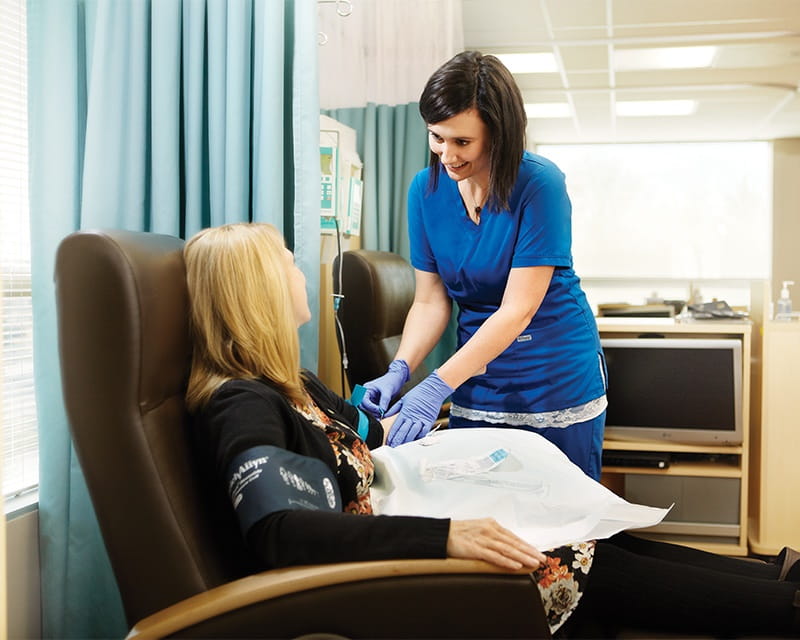
Alcohol-related aggression: New therapies may result from Ohio State study

Ketamine, best known as an anesthetic used during surgery, is gaining increased attention as a treatment option for people with severe depression that is resistant to other medications and treatments. Ohio State began offering an intravenous ketamine regimen in 2018 for patients who have failed at least two different classes of anti-depressant medication. Most have also failed either electroconvulsive therapy or transcranial magnetic stimulation.
“We’re the only program in central Ohio with trained staff to offer intravenous ketamine for refractory depression. We’ve given more than 250 IV infusions to date,” says Subhdeep Virk, MBBS, Ohio State psychiatrist and director of the neurotherapy program. Explaining psychiatrists’ interest in ketamine, she notes that studies conducted in the early 2000s had shown a vigorous response with a single administration of ketamine within 24 hours. Currently, intravenous ketamine is approved by FDA for use as an anesthetic agent and not in treatment of depression, but the past and emerging data in depression is quite compelling in its antidepressant effects.
“Ketamine does not work in the same way as traditional antidepressants,” she continues. “Its robust, quick response is welcome, because when we prescribe most antidepressants, we have to wait several weeks to see how they’re working and whether they are the drug of choice.”
For appropriate patients, Ohio State follows a protocol for standard dosing: 0.5 milligrams per kilogram, with infusions twice a week for four weeks then weekly for a month. Not all patients see enough benefit to continue the full course of treatment. Doctors closely regulate administration, since ketamine has the potential to become addictive.
In spring 2019, the Food and Drug Administration approved SpravatoTM, an esketamine nasal spray, for the same population. Ohio State participated in the clinical trials for esketamine and plans to begin using the nasal spray later this year.
Dr. Virk emphasizes that she and her colleagues are using ketamine as a “last resort for very complex patients who have been sick for a long time and have failed other treatments.”
Because it’s an off-label use, ketamine for treatment-resistant depression often is not covered by insurance. Psychiatrists must screen people thoroughly for co-morbid medical or substance issues because of its potential for abuse.
During the first year of use at Ohio State, ketamine for depression produced mixed results, Dr. Virk says. “We want a bigger cohort, with more data. Currently, we’re studying characteristics of people most likely to benefit.”
Data thus far shows females having greater improvement, although Dr. Virk doesn’t want to draw conclusions yet. Positive effects include elevated mood and energy and alleviation of negative or suicidal thoughts.
She notes, “When we’ve seen patients who have tried multiple medications and therapies without relief, we want to offer treatment that has a different mechanism with a quicker response. Ketamine is one of our biggest breakthroughs in severe depression treatment in recent years.”
Because its long-term effects aren’t known, she does recommend that patients continue with their current medications and therapies and possibly do intensive outpatient cognitive therapy to complement benefits of ketamine.
She concludes, “We’ll continue to collect data and offer ketamine and other novel, investigational treatments to alleviate symptoms of the often chronic, relapsing condition of depression.”